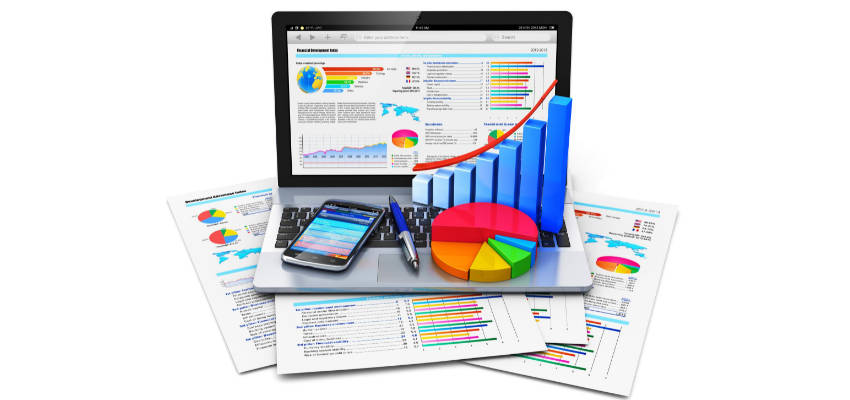Show:
The Essential Role of Business Analytics Skills in the Digital Era
The infusion of digital technology in every facet of operations has created an unprecedented need for professionals with robust business analytics skills. These skills are no longer just an added advantage but a necessity for organizations aiming to harness the full potential of vast data volumes to drive decision-making and foster innovation. This article seeks to explore the critical role of business analytics skills in the digital era, offering insights into how these competencies empower professionals to effectively analyze data, derive actionable insights, and contribute to the strategic growth of their organizations.

The Evolution of Business Analytics
The domain of business analytics has continuously evolved, mirroring the advancements in digital technology. Initially, analytics was about understanding historical data, but today, it encompasses predictive and prescriptive analytics, empowering businesses to not only interpret past trends but also forecast future ones. This shift underlines the growing complexity and scope of the analyst’s role in modern enterprises.
With the rise of big data, the importance of sophisticated analytics techniques has never been more pronounced. Organizations are now required to process and make sense of data that is not only voluminous but also varied in nature, coming from multiple sources. This has led to an increased demand for professionals who can blend traditional business acumen with cutting-edge analytical skills to drive meaningful insights. With online business analytics courses and training programs readily available, individuals can acquire these skills and take advantage of the growing demand for analytics professionals. It is evident that business analytics skills are no longer just a nice-to-have but a must-have in today’s digital landscape.
Key Business Analytics Skills in the Digital Age
Certain business analytics skills stand out for their critical importance in leveraging data effectively. Firstly, technical skills such as data mining, machine learning, and statistical analysis are indispensable for interpreting complex datasets. Equally important are soft skills, including critical thinking and effective communication, which enable analysts to convey their findings in a manner that’s understandable to non-technical stakeholders.
Another essential skill set involves understanding data privacy laws and ethical considerations in data handling. Professionals must be adept at ensuring data is used responsibly, respecting user privacy, and abiding by legal and regulatory requirements. This not only safeguards the organization against legal repercussions but also builds trust with customers and partners.
Tools and Technologies in Business Analytics
The landscape of business analytics is rich with tools and technologies that facilitate the extraction, examination, and presentation of data. From advanced analytics software like SAS, Tableau, and R, to databases and data processing frameworks like SQL and Hadoop, knowledge of these tools is crucial. These technologies offer the capabilities needed to handle large datasets, automate processes, and visualize findings in an impactful way.
Cloud computing has also revolutionized the way data is stored and analyzed, providing scalable resources and tools that businesses can leverage for analytics projects. This has made analytics more accessible and cost-effective, enabling even small and medium-sized enterprises to benefit from data-driven decision-making.

The Impact of Business Analytics on Decision-Making
Business analytics significantly enhances the quality of decision-making in organizations. By providing a solid foundation of factual data analysis, it reduces the reliance on intuition, leading to more informed, logical, and strategic decisions. These data-driven decisions can significantly improve various aspects of business operations, from marketing strategies and customer service to product development and supply chain management.
Analytics can identify new opportunities and areas for improvement that might not be visible through traditional analysis methods. For example, data analytics can uncover unexpected customer behavior patterns, enabling businesses to tailor their offerings more effectively, thus driving innovation and competitiveness.
Careers and Opportunities in Business Analytics
The demand for skilled business analytics professionals is booming, creating exciting career opportunities across various industries. Positions like data analysts, business intelligence analysts, and data scientists are in high demand, as organizations seek to leverage data for competitive advantage. These roles offer the chance to work on interesting projects, such as designing predictive models, conducting A/B testing, and developing business strategies based on data insights.
For those interested in pursuing a career in this field, it’s vital to focus on continually developing both technical and soft skills, and staying abreast of the latest tools, technologies, and industry trends. With businesses increasingly recognizing the value of data-driven strategies, the future for individuals with expertise in business analytics looks exceptionally bright.
The Educational Path to Business Analytics
To kickstart a career in business analytics, one must pursue a relevant educational background that imparts both technical and business acumen. Degrees in fields like data science, statistics, computer science, and business administration provide a solid foundation. These programs often cover essential topics such as statistical analysis, data management, and business strategy, equipping students with the knowledge required to tackle real-world business challenges.
In addition to formal education, certifications in specific analytics tools and technologies can enhance a professional’s credentials. Renowned certifications from institutions like SAS, Microsoft, and Google offer specialized training in analytics software, cloud platforms, and machine learning. Such qualifications not only validate one’s skills but also signal to employers a commitment to staying updated with industry advancements.
The Role of Continuous Learning in Business Analytics
The field of business analytics is dynamic, with new tools, technologies, and methodologies continuously emerging. To remain effective and relevant, professionals must commit to lifelong learning. This means staying informed about the latest trends in analytics, such as advancements in artificial intelligence (AI), machine learning, and big data technologies. Participating in workshops, webinars, and industry conferences can provide valuable insights into these evolving areas.
Engaging with a community of analytics professionals can be incredibly beneficial. Online forums, professional networks, and social media groups offer platforms to share knowledge, discuss challenges, and explore innovative solutions. This collaborative approach to learning helps individuals not only acquire new skills but also apply them creatively to solve complex business problems.
Ethical Considerations and Social Responsibility
In the realm of business analytics, the power to mine and analyze vast quantities of data comes with significant ethical responsibilities. Professionals must ensure that data is collected, stored, and used in a manner that respects individual privacy and complies with regulatory standards. This includes being mindful of data bias and taking steps to mitigate its impact on analytics outcomes, ensuring that decisions based on data analytics promote fairness and inclusivity.
Businesses and analytics professionals have a social responsibility to use data in ways that contribute positively to society. This could involve developing data-driven solutions to social issues, such as environmental conservation, healthcare, and education. By harnessing the power of analytics for social good, organizations not only adhere to ethical standards but also build trust and a strong reputation among stakeholders.
The digital era presents an immense opportunity for businesses to transform their operations and achieve success through data-driven strategies. However, realizing this potential requires professionals with a strong foundation in business analytics skills and a commitment to continuous learning and ethical practices. By embracing these competencies, organizations can harness the full power of data analytics, drive innovation and growth, and stay ahead in an increasingly competitive business landscape.

 Return to Previous Page
Return to Previous Page








